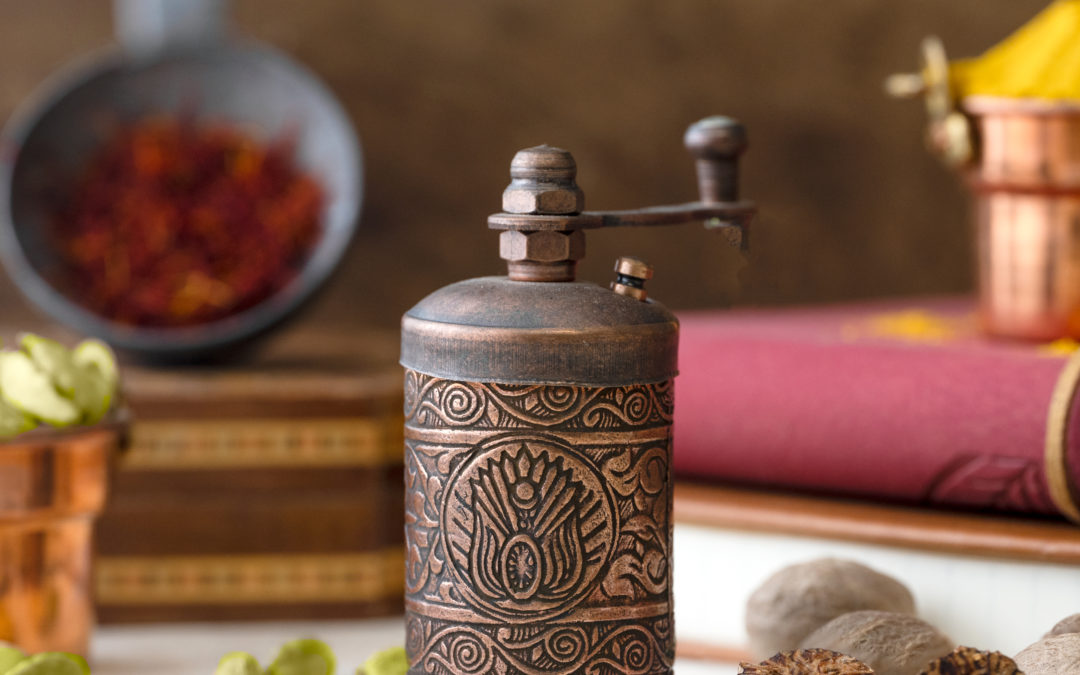Herbs and spices have had a variety of interesting uses throughout history. From herbal medicine, to superstitious rituals, to textile dying, fragrance, and flavor, the fascinating history of herbs and spices is truly endless. Pulling from our vast knowledge of herbs and spices and over a half a century in the industry, we compiled ten fun facts about your favorite herbs and spices.
Enjoy! And make sure to click through to learn more.
1. Sesame Seeds
These tiny seeds were used in cleansing rituals as a symbol of immortality in funeral ceremonies. During wars, sesame seeds were rationed to soldiers needing strength to survive their strenuous tasks. Learn more about sesame seeds.
2. Cumin
Cumin is an ancient spice that dates back to the Greek and Roman empires. This flavor-packed seed has been used in home remedies and religious ceremonies, as well as used to ward off bad luck and illness. Learn more about cumin.
3. Chili Peppers
Chili Peppers are believed to have originated in French Guiana, where Columbus found them on his quest to find black peppercorns (which were very valuable at the time). While some accounts debate the details, it’s generally accepted that chili peppers were discovered in the New World by Columbus. Learn more about chili peppers.
4. Sumac
Sumac was used to dye wool and tan leather In ancient Greek and Roman times. It was also used in alternative medicine for its believed antioxidant and antimicrobial properties. Learn more about sumac.
5. Garlic
This ancient spice appeared in 5,000-year-old texts and was known throughout the ancient world for its believed medicinal and magical properties. It was even traded as currency. Garlic was mentioned in ancient texts, including the Torah. In the Talmud, it was even praised for its various health benefits. Learn more about garlic.
6. Black Pepper
Sometimes referred to as “black gold” and the “king of spices”, black pepper was a luxury spice. Historically, it was used as a status symbol, a medicine, a wealth-builder across continents, and even as a viable currency which some would use to pay their taxes. Learn more about black pepper.
7. Coriander
Coriander is a long-celebrated spice that dates back thousands of years. It was discovered in Egyptian tombs dating back to approximately 1,000 BCE, and it is mentioned in the Bible in The Book of Exodus. Learn more about coriander.
8. Oregano
Oregano was believed to be created by Aphrodite as a symbol of happiness, according to ancient Greeks. As such, it was used in Greek marriage ceremonies for years to express well wishes. Learn more about oregano.
9. Dill
This herb was made into love potions in the Middle Ages because it was believed to be a natural aphrodisiac. In fact, during this time period, there is some evidence that dill was also used by witches in witchcraft rituals because they thought it had magical properties. Learn more about dill.
10. Thyme
Thyme was revered for its fragrance in ancient Greece and was believed to have magical powers. This herb was a symbol of elegance, courage, and strength. In fact, “You smell of thyme” was one of the best compliments one could give to another in ancient Greece. Learn more about thyme.
What are your favorite facts about herbs and spices? What herbs and spices would you like us to write about this year?
At PSC, we are passionate about herbs and spices and believe in being lifelong learners. And while this list barely scratches the surface, we hope these ten fun facts give you an even greater appreciation for the herbs and spices that flavor your food.

